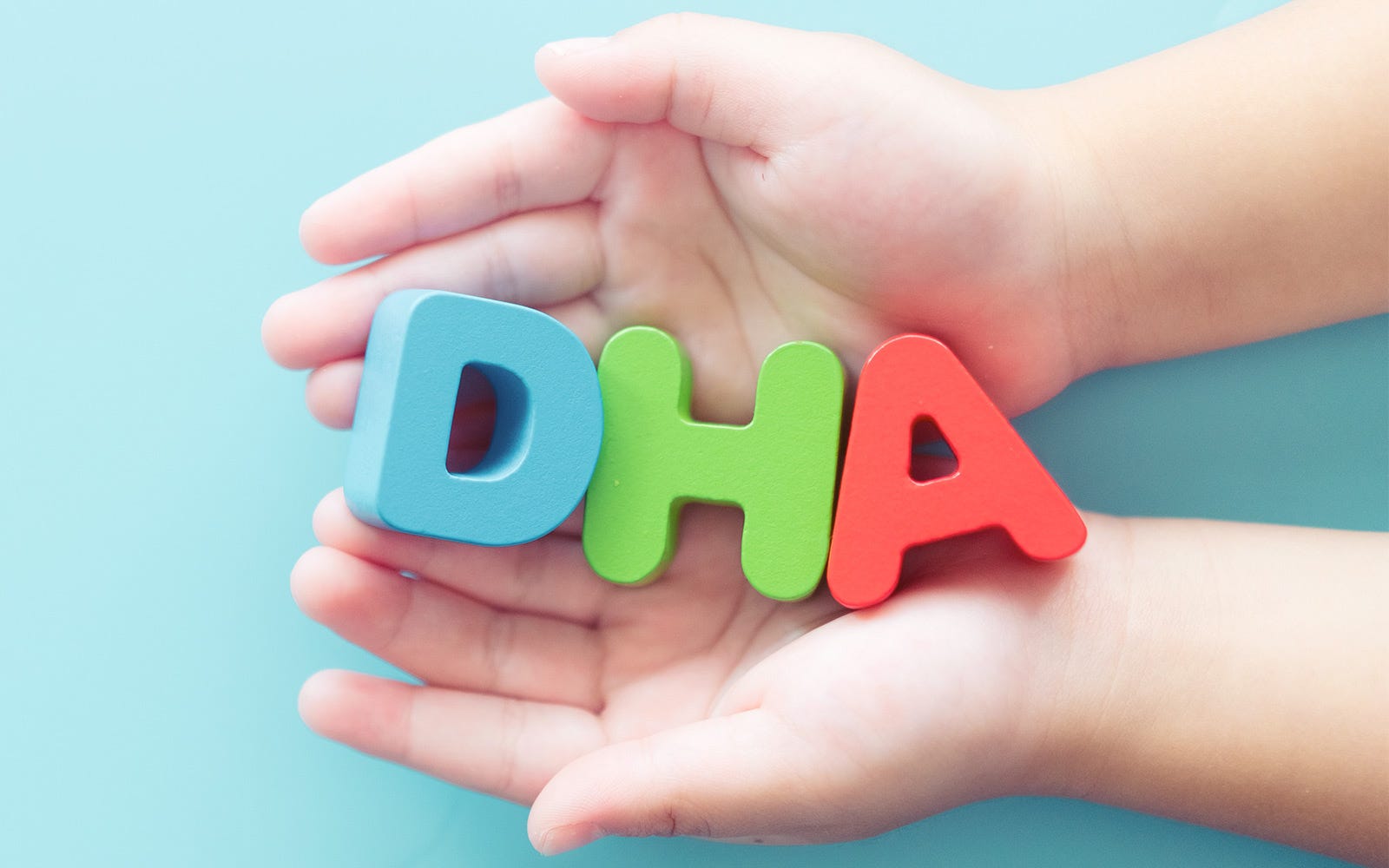How Omega-3 DHA Fish Oil Supports Your Child's Development
As a parent, you want your child to have every possible advantage in life. One of the best ways to support your child's development and growth is by ensuring they have a healthy diet.

Omega-3 fatty acids are an essential component of a healthy diet and have been shown to have many benefits for children, starting from pregnancy into infancy and childhood.
Omega-3, 6, and 9 Fatty Acids
Omega-3, 6, and 9 are different types of fatty acids. While they all play important roles in our health, they have different functions in the body.
Omega-3 and omega-6 are essential fatty acids, meaning our body cannot make them itself and we must consume these in our diet. Whilst omega-9 is not, our bodies can produce omega-9 on its own.
Let’s take a closer look at what omega-3 fatty acids are, why they're important for children, and how to ensure your child gets enough of them.
The Importance of Omega-3 Fatty Acids
Omega-3 fatty acids are a type of polyunsaturated fat that is essential for the human body. These fats play a crucial role in maintaining good health and well-being. Our bodies cannot produce omega-3 fatty acids on their own, so we must get them through our diet or supplements.
The Types of Omega-3 - DHA, EPA and ALA
There are three main types of omega-3 fatty acids: DHA, EPA, and ALA. DHA and EPA are found in fatty fish, such as salmon, tuna, and mackerel. ALA is found in plant-based sources, such as flaxseeds, chia seeds, and walnuts.
DHA and EPA are more important for overall health and development, particularly for the brain and our eyes.
The Importance of Omega-3 Fatty Acids for Children
Omega-3 fatty acids are essential for children's growth and development. They play a crucial role in the development of the brain and nervous system. DHA, in particular, is important for brain development and function, as well as for visual development.
Brain Development During Early Childhood and Omega-3
The brain undergoes rapid development during the first few years of life. During this time, the brain requires optimal nutrition to support its growth and development.
Omega-3 fatty acids are an essential nutrient for the developing brain, supporting its structure and function.
The Importance of Omega-3 DHA During Pregnancy
During pregnancy, omega-3 fatty acids are important for the development of the baby's brain and nervous system. DHA, in particular, is essential for the development of the baby's eyes and brain.
Adequate omega-3 intake during pregnancy has been linked to better cognitive development, as well as a lower risk of developmental delays and behavioural problems.
Fish Contains Omega-3 Fatty Acids DHA and EPA
Fish, such as salmon, tuna, and mackerel, are excellent sources of omega-3 fatty acids. These fish contain high levels of both DHA and EPA, both of which are important omega-3 fatty acids for overall healthy growth and development.
Other types of fish, such as sardines, herring, and trout, are also good sources of omega-3s.
Low Omega-3 Levels Intake by Children
Despite the importance of omega-3 fatty acids, many children do not get enough of them in their diet. There are several reasons for this, including:
-
Limited consumption of fatty fish: Many children do not eat enough fatty fish, which is one of the best sources of omega-3 fatty acids.
-
Picky eaters: Some children may be picky eaters and refuse to eat foods that contain omega-3s.
-
Processed foods: Processed foods are often high in omega-6 fatty acids and low in omega-3s, which can disrupt the balance of essential fatty acids in the body.
Increase Your Child’s Omega-3 Fish Oil Intake
There are several ways to support your child's omega-3 DHA intake and ensure they get enough of these essential fatty acids. Here are some tips:
-
Incorporate fatty fish into their diet: Encourage your child to eat fatty fish, such as salmon, tuna, and mackerel, at least twice a week. If your child is a picky eater, try disguising the fish in other foods, such as fish cakes or fish tacos.
-
Use omega-3 supplements: Omega-3 supplements can be a convenient way to ensure your child gets enough of these essential fatty acids. Look for supplements that are specifically formulated for children and are made from high-quality sources.
-
Add flaxseeds and chia seeds to their diet: Flaxseeds and chia seeds are good sources of ALA, which can be converted into DHA and EPA in the body. Try adding these seeds to your child's oatmeal, smoothies, or yoghurt.
-
Limit processed foods: Processed foods are often high in omega-6 fatty acids and low in omega-3s. Try to limit your child's intake of processed foods and instead focus on whole foods, such as fruits, vegetables, and whole grains.
Omega-3 fatty acids are essential for children's growth and development, starting from pregnancy and throughout infancy and childhood.
Adequate omega-3 intake can support the development of the brain and nervous system. By incorporating fatty fish, supplements, and other sources of omega-3s into your child's diet, you can ensure they get the nutrients they need to thrive.
Learn more about omega-3 fish oil supplements for kids.







